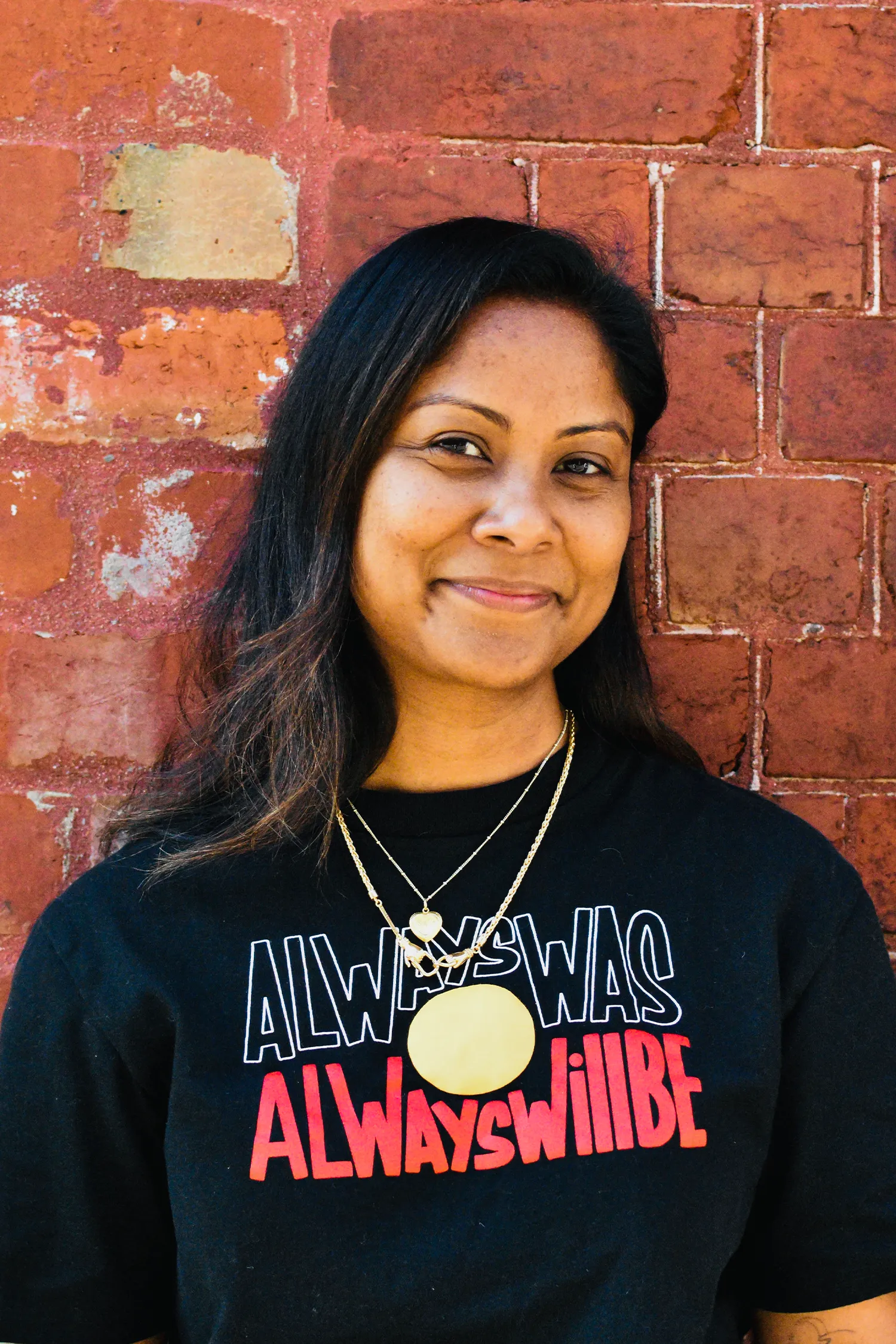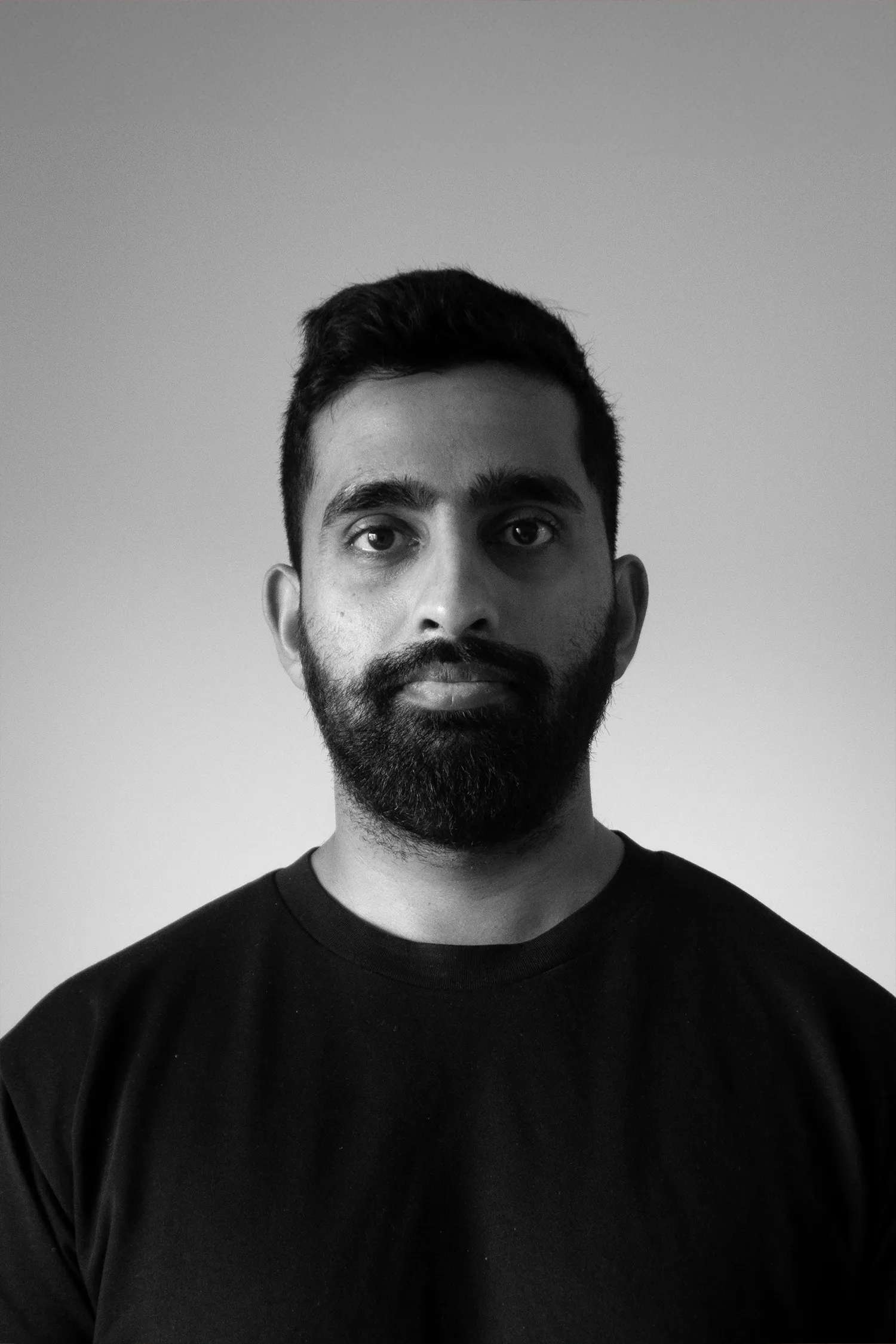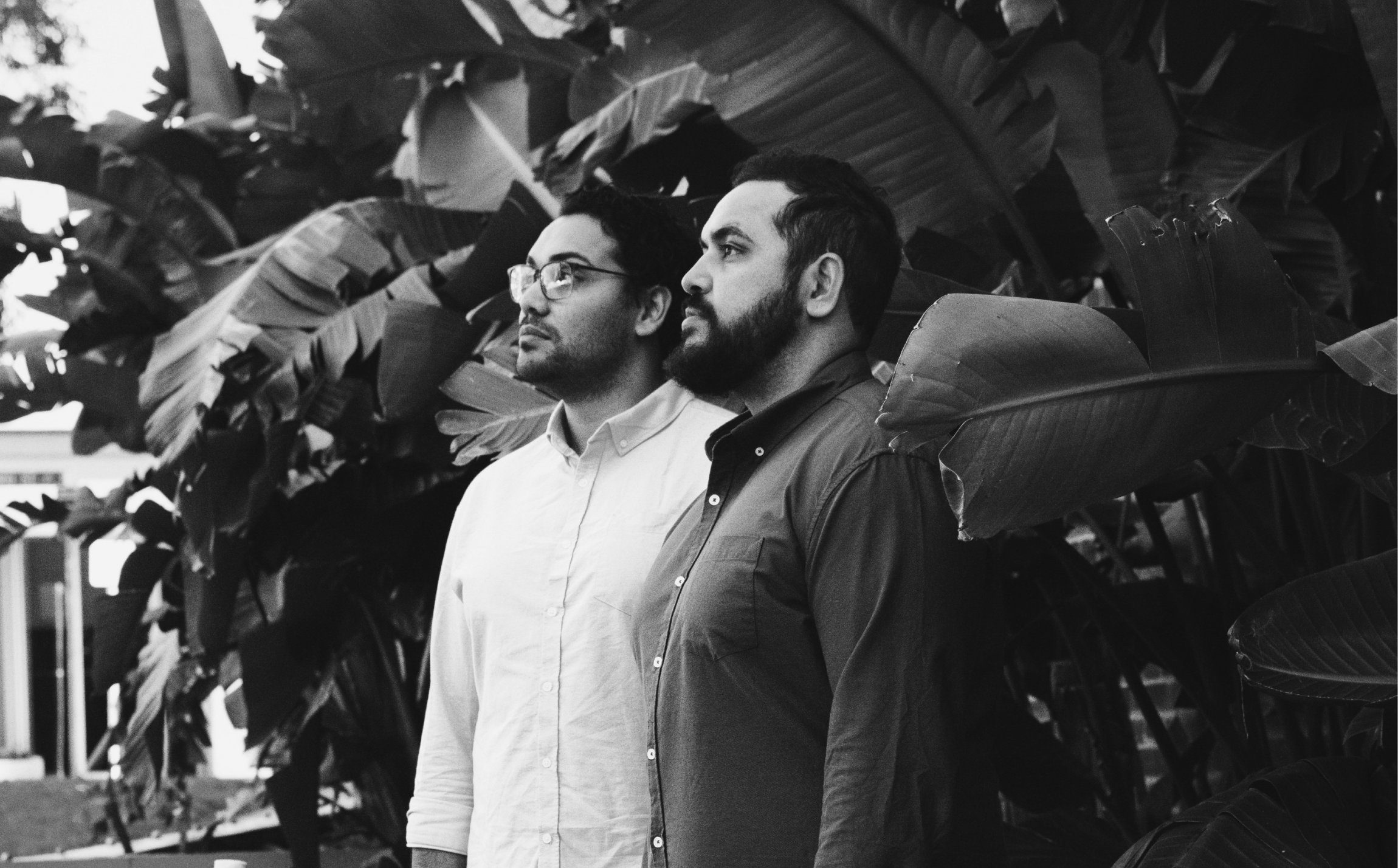
Interview BEE MOHAMED
Photography RUDRA SAHA
Love for Country, and culture: KORI KEED and JACOB KEED
Kori Keed and Jacob Keed are the Co founders of Walamarra Botanicals, the first and only Indigenous owned medicinal cannabis company in Australia. The two brothers are from Wiradjuri Country, New South Wales, where it is rich with fertile dirt and connected by beautiful flowing waters that springs from the three rivers that unite the lands of the Wiradjuri people: the Murrumbidgee, the Lachlan and the Macquarie. In this interview, the two brothers share how storytelling, their connection to Country and culture have guided and supported them throughout their lives.
Aboriginal and/or Torres Strait Islander people should be aware that this page contains images of deceased persons.
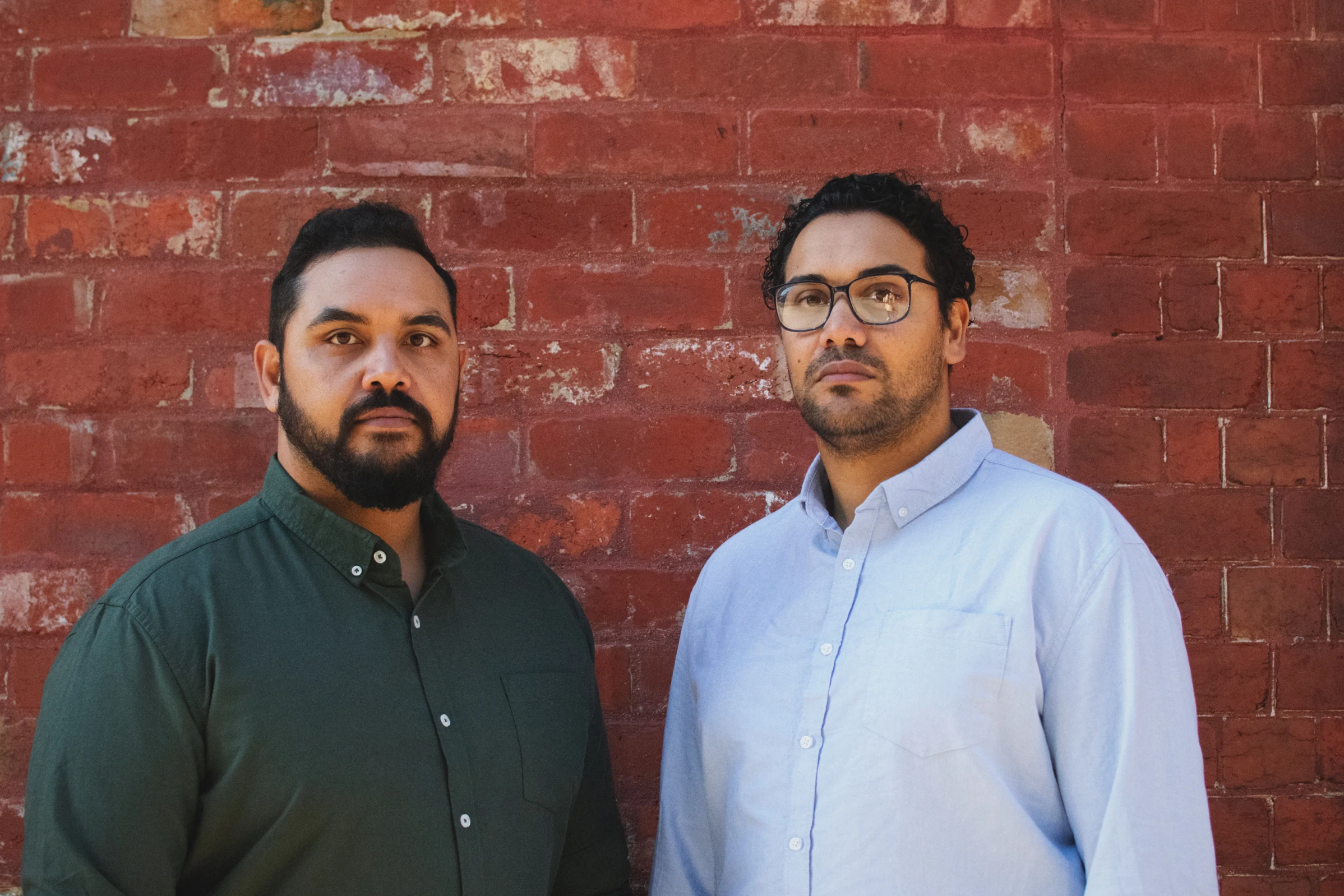
BEE MOHAMED: Where does your love for storytelling come from?
JACOB KEED – For my brother (Kori) and me, storytelling holds deep importance in First Nations cultures because it allows us to continuously pass on the core values that guide our way of life. These stories aren’t just about tradition—they’re about teaching and living the values we all need to recognize and practice every day. At the heart of our Wiradjuri Nation is the principle of Yindyamarra, a way of living that embodies respect, honour, kindness, gentleness, and patience.
Through our storytelling, we promote Yindyamarra by sharing the lessons our people have learned from observing the land, waters, and animals—each of which demonstrates this way of being. These natural elements are our teachers, and their wisdom is reflected in the stories we tell, as well as in our dances and songs.
By telling these stories, we aim to ensure that these life lessons are embraced not only by individuals but also by families and entire communities. Our goal is to encourage unity and harmony through the living practice of Yindyamarra, every day.
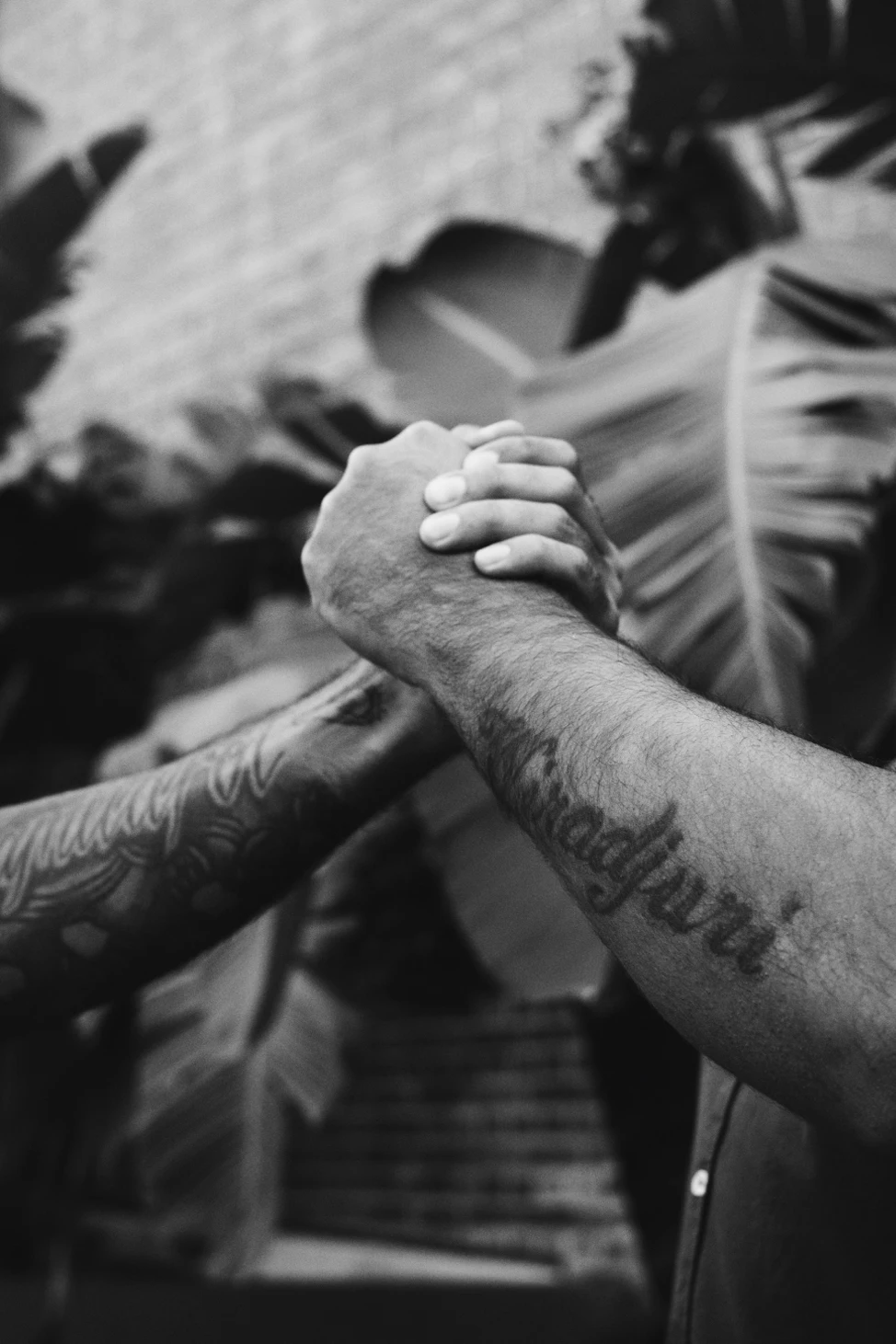
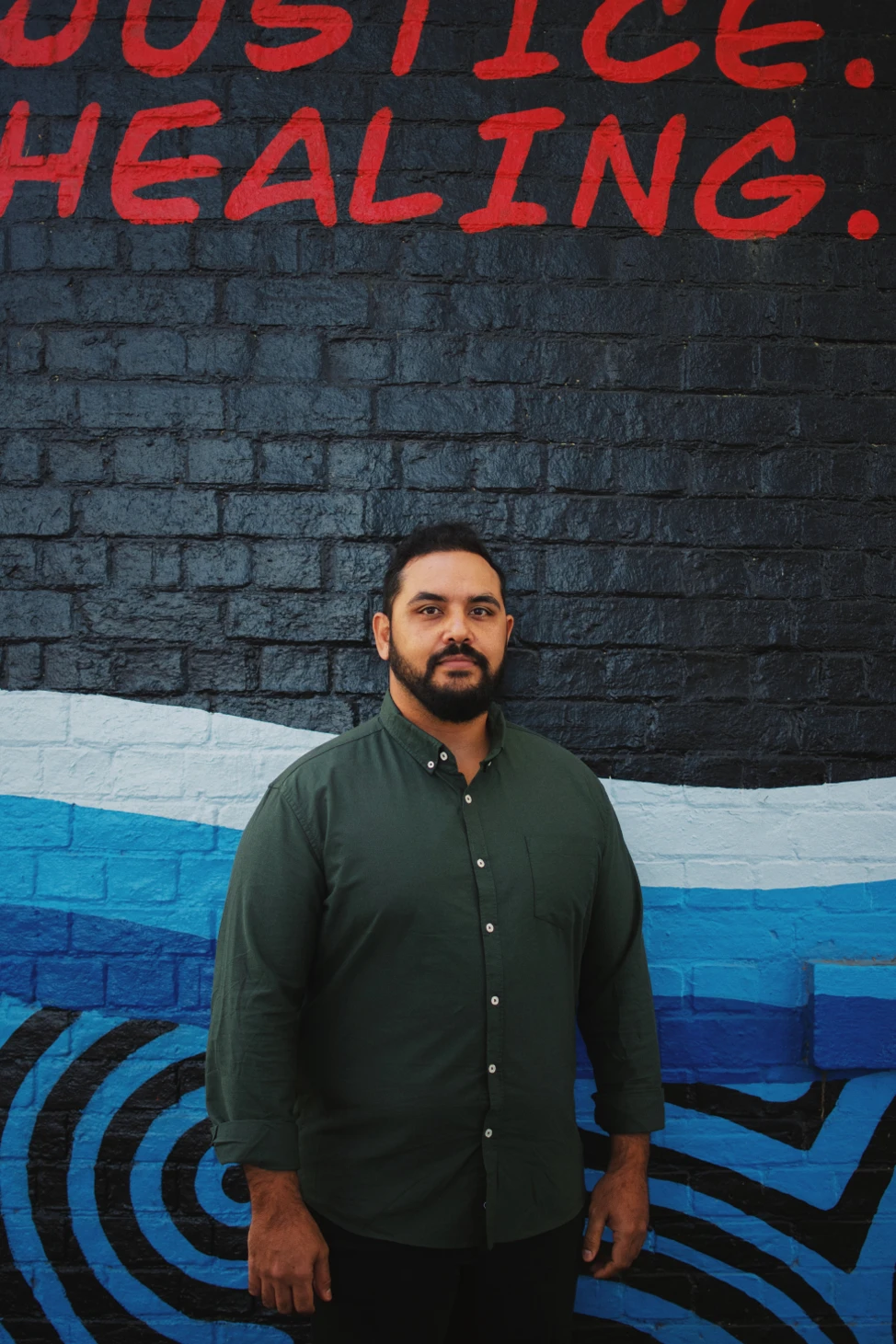
BM: In what ways is storytelling practised within Indigenous culture?
KORI KEED – Storytelling in our culture takes many forms, through songs, songlines, ceremonies, and dance. Each of these practices reflects the land, waters, and animals, which serve as powerful teachers and mirrors of the life lessons we’re meant to learn.
One ceremony we’d like to share is the Yindyamarra Healing Ceremony, which my brother Jacob and I perform in the quiet stillness of early morning, as the sun rises. This ceremony is a sacred cultural practice passed down to us through generations of Wiradjuri knowledge holders.
Yindyamarra is a form of storytelling that conveys a deep set of values and has served as a source of guidance for the Wiradjuri people for thousands of years. By sharing the values and stories of Yindyamarra, I feel it has helped us build respectful relationships—both with ourselves and with others
Its purpose is to slow us down, allowing us to fully absorb the guidance and presence of the land, waters, and animals. During this time, we ground ourselves, focus on a relationship that needs attention, and reflect on where we’re heading in life. It’s also a space for self-reflection, particularly on our totems—spiritual gifts passed on by our Elders, carrying deep personal and cultural meaning.
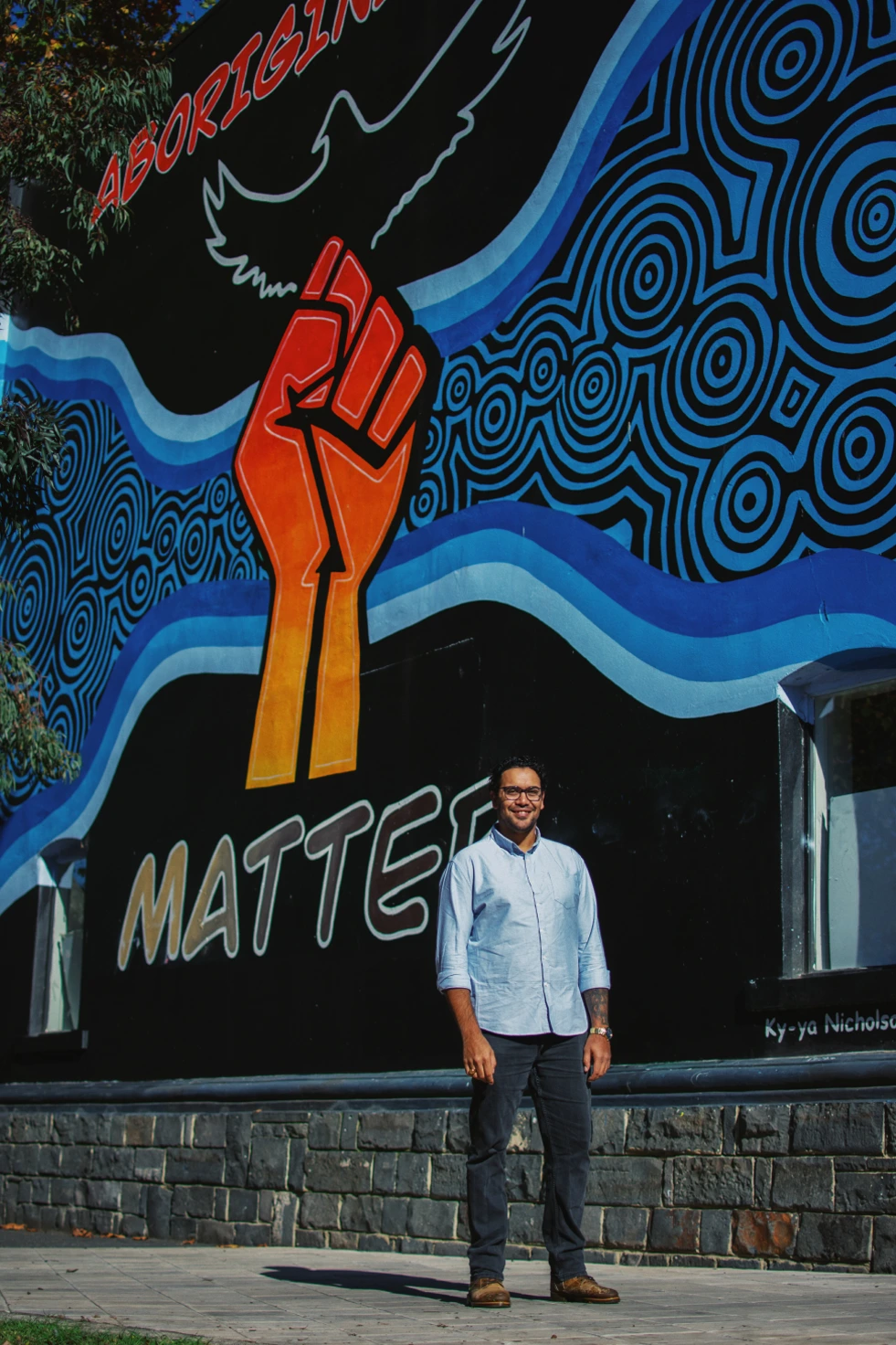
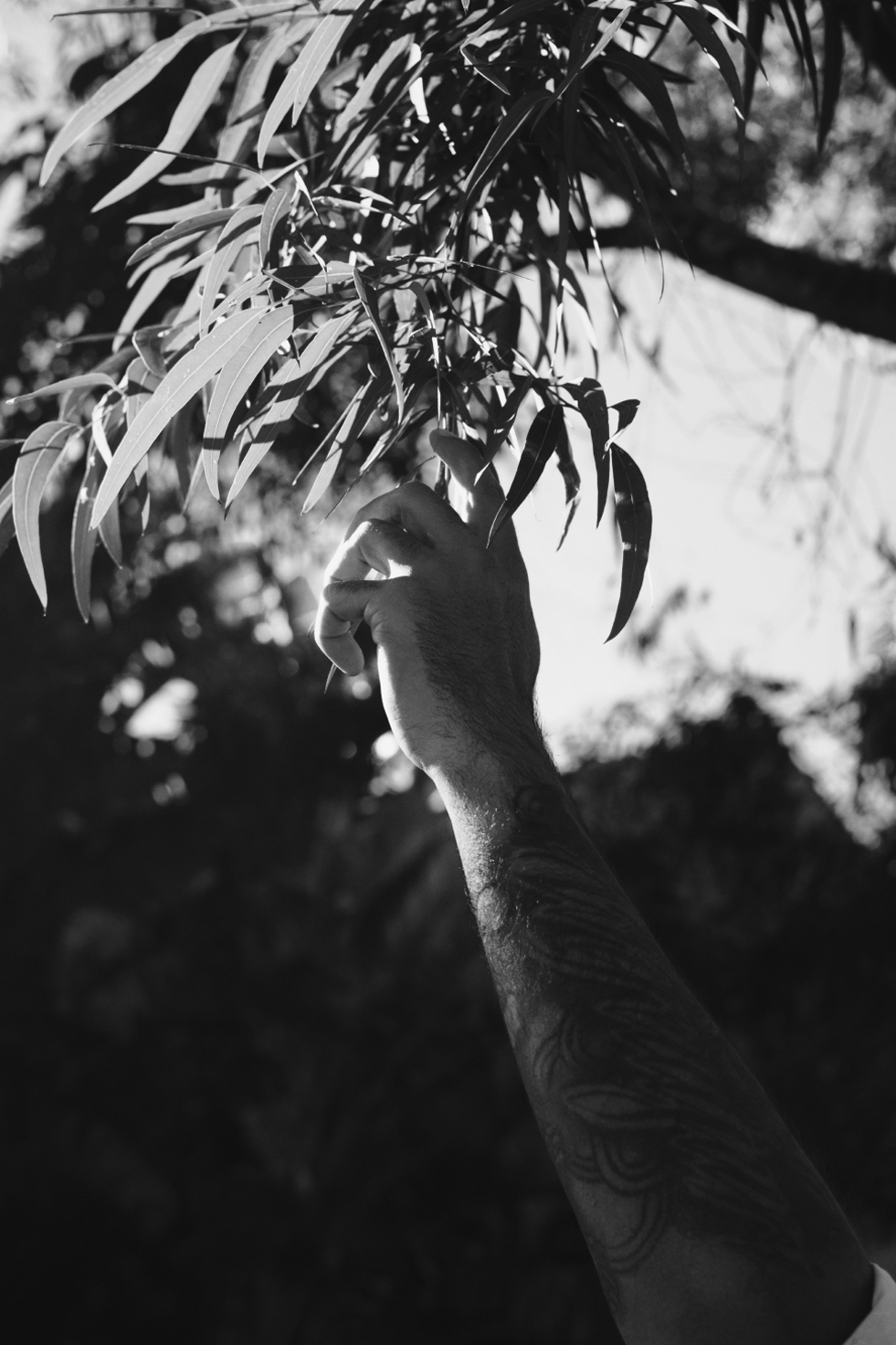
BM: What is one story that has guided you through life?
KK – My totem is the cockatoo. I’ve learned the meaning of Yindyamarra by observing how cockatoos live their lives. They’ve shown me the strength that comes from unity—how family and community are at their best when they stand together. Watching them, I came to understand that we are stronger when we support one another. These were the stories and lessons in life that I have been able to receive from my ancestors, but also from being connected to country.
From the older cockatoos to the younger ones, I’ve seen moments of respect, kindness, and gentleness amongst the cockatoos. These lessons, especially within the family and community, are ones I carry with me. I hope to reflect those same values when I am recognised as an elder in the future.
BM: How have connection and love for your culture and its stories shaped your journey?
JK – Kori and I both believe that Yindyamarra has saved us—saved us from paths in life that could have led to chaos and harm. For me, Yindyamarra became a turning point when I was sixteen, during a time when I struggled with anxiety and uncertainty about who I was and where I was heading. One evening, my uncle sat with me by the fire beside the flowing waters of the Dubbo River. It was there he introduced me to the teachings of Yindyamarra. He showed me the qualities of the old Wiradjuri medicine men and helped me understand how to live with respect, patience, and purpose.
Since that beautiful moment with my uncle, I’ve been able to reflect more clearly and make thoughtful, respectful decisions—choices that align with who I am as a man, a brother, a son, a friend, and a member of my community.
KK – For me, connection and love for my culture was developed by spending time with my Dad and the stories he shared. It has helped me stay grounded in my culture and identity.
Since my father’s passing, I’ve stayed connected to him by listening to the many meaningful stories shared by those who were closest to him—his brothers, close cousins, and former colleagues. Hearing about his life through the experiences of others has given me a deeper, more layered understanding of who he was. Talking about him and listening to these memories has brought me a strong sense of connection and peace with his passing.
I truly believe, in both my heart and spirit, that he lives on through me and my brother.
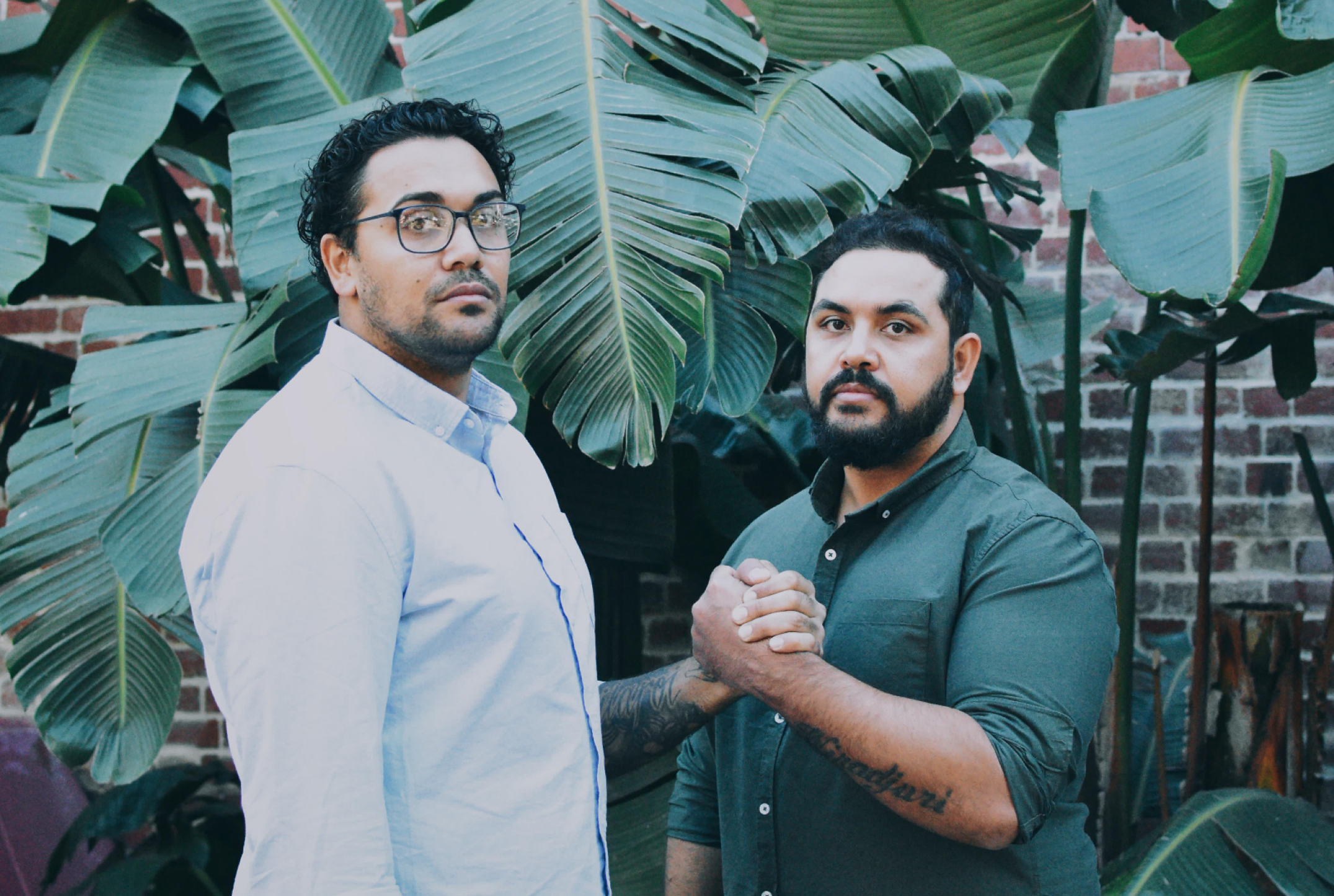
BM: In the modern era, how do you stay connected to the stories you learnt within your culture?
JK: – In today’s world, culture continues to be a strong foundation for Kori and me. Our strength comes from generations of cultural knowledge holders and Elders who continued to share stories, even through the painful and oppressive chapters of Australia’s history.
Their unwavering commitment to keeping our culture alive through storytelling has placed us in a powerful position—one where we can now bring First Nations knowledge into the health and medicine industry.
By continuing this storytelling in a modern context, we aim to inspire and uplift not only First Nations people across Australia, but also communities around the world. We believe that cultural storytelling can improve the wellbeing of individuals and the people they care about, and this is the reason why we started Walamarra Botanicals too.
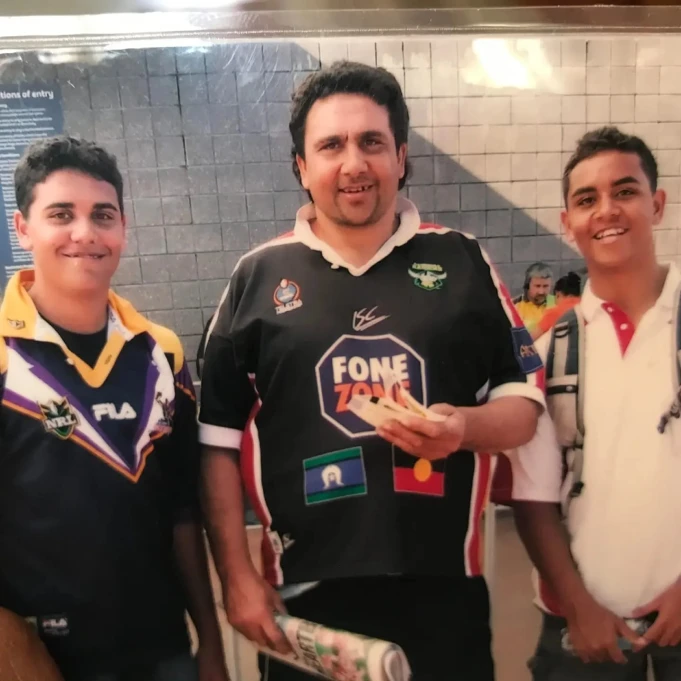
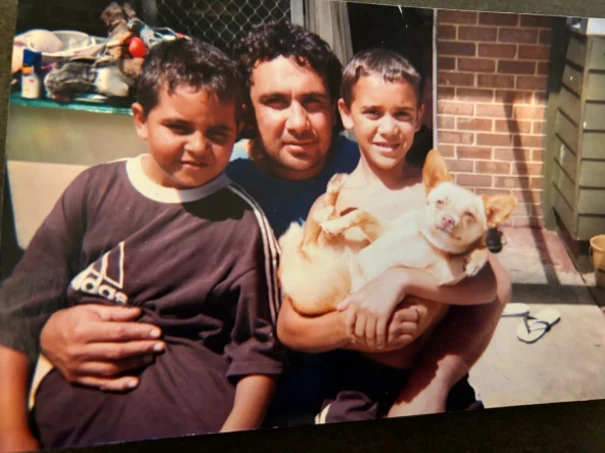
ABOUT WALAMARRA BOTANICALS
Walamarra Botanicals is the first and only Indigenous-owned medicinal cannabis company in Australia. “Walamarra” means medicine men in Wiradjuri language and Walamarra Botanicals aims to provide natural medicines and natural healing to fulfill the needs of the individual and collective.
Ancient healing for a modern world.
